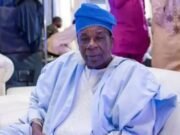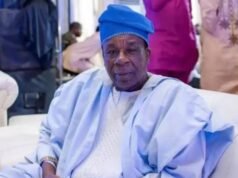“I have pen in my hand and I will never sign for any local government autonomy” -Governor Seyi Makinde
Let me begin my rant by saying, I don’t know the name of the chairperson of my local government. I don’t know if the chairperson is a man or a woman. Likewise, I don’t know the name of my ward councilor. I don’t know if the chairperson is a man or a woman. I have never seen my own local government chairperson. I don’t know where he or she lives. I have never seen a project started and completed by my local government. I only know Governor Makinde. I am not an outlier, how many people know the name of their local government chairperson?
Since the supreme court pronouncement on local government financial autonomy, Oyo State Governor, Seyi Makinde, has been running helter-skelter, interpreting the interpretations of the supreme court on the financial autonomy and strengthening the independence of local governments in Nigeria. The supreme court has said: “It is the position of this court that the federation can pay local governments allocations directly to the local governments or through the states. In this case, since paying them through the states has not worked, justice demands that local governments allocations from the federation account should henceforth be paid directly to the local governments…I hold that the states’ retention of local government funds is unconstitutional.”
The supreme court was vehement that the prevalent use of caretaker chairmen to manage the affairs of local government councils is unconstitutional.
The court said, “An order of injunction is hereby granted restraining the defendants from collecting funds belonging to the local government councils when no democratically elected local government councils are in place”.
Since the judgement, Governor Makinde, has been verbally vocal against such strengthening of local governments in the state. The governor even set up a committee to review the judgment of the supreme court. What is Governor Makinde afraid of judgement that favors Nigerian democracy?
I have listened and interacted with the people in my community – even people who voted for Governor Makinde – I have never seen one who subscribed to the Governor Makinde School of Thought that financial autonomy and independence of local governments are bad for the state. On this path, Governor Makinde is walking alone.
To be fair to Governor Makinde, he has never acknowledged predilection for local government autonomy. I listened to Governor Makinde’s response to local government autonomy at the 2023 Splash FM gubernatorial debate, where he said: “I have a pen in my hand and I will never sign for any local government autonomy”. He didn’t promise either partial or relative autonomy for local government under his administration. Maybe the governor believed that his predecessor enjoyed monopoly over local governments, why should this be different. I don’t know what Governor Makinde thinks he is. The fact is that his personal interest doesn’t matter when it clashes with the interests of the people and the constitution of the land.
The Supreme Court is supreme. Enough of master-slave relationships between the state government and the 36 local governments. We have tested it since the return to the present dispensation in 1999, it has not worked. It means it can’t work. Why are the governors resisting the change? Why are they hellbent on making the local government a slave of the state?
Local governments ought to be battlegrounds for competing developmental ideas. They should be an experimentation laboratory for innovative ideas and policies for the state to draw from. When there is healthy competition between local governments, the development of the state is fast-tracked. The state can also draw from the tested and working policies of a grassroot local administration to contribute to and drive his own policy. That is what autonomy does to local government administration.
Competition between local governments will benefit the state. Each of the local governments would know its area of competitive advantage and invest its resources there. Local government ought to be a support mechanism for a state to fulfil its responsibilities to its citizens. These cannot be realized unless the state unburdened itself from the yoke of centralization.
A responsive government is never centralized. A centralized government is a recipe for failure. It stifles innovation. Responsive government is decentralized. A well-governed state is a decentralized state. A functioning state is where local governments have control over their own finance, and mechanism for generating revenue.
There would be corruption and mismanagement, not doubt. Local government autonomy as pronounced by the supreme court has nothing to do with eradication of corruption and mismanagement of council resources. The judgement means that the resources of the local government should be channeled towards the grassroots development.
The closer the government is to the people, the more people get involved and put pressure on their representatives. Each council will demand for more taxes from the people under their administration to finance their projects, in return, the taxpayers will demand for accountability from the councils in their financial statements. More people will get involved. Democracy involves participation, and participation starts from the grassroot. We often hear the catchphrase that “all politics is local”.
Democracy is about participation of people. Participation begins at the grassroots.
Someone should remind Governor Makinde that the ink in his pen is about to die, and it will dry permanently in 2027.
Afeez Lasisi,
lasisiafiz@gmail.com



































